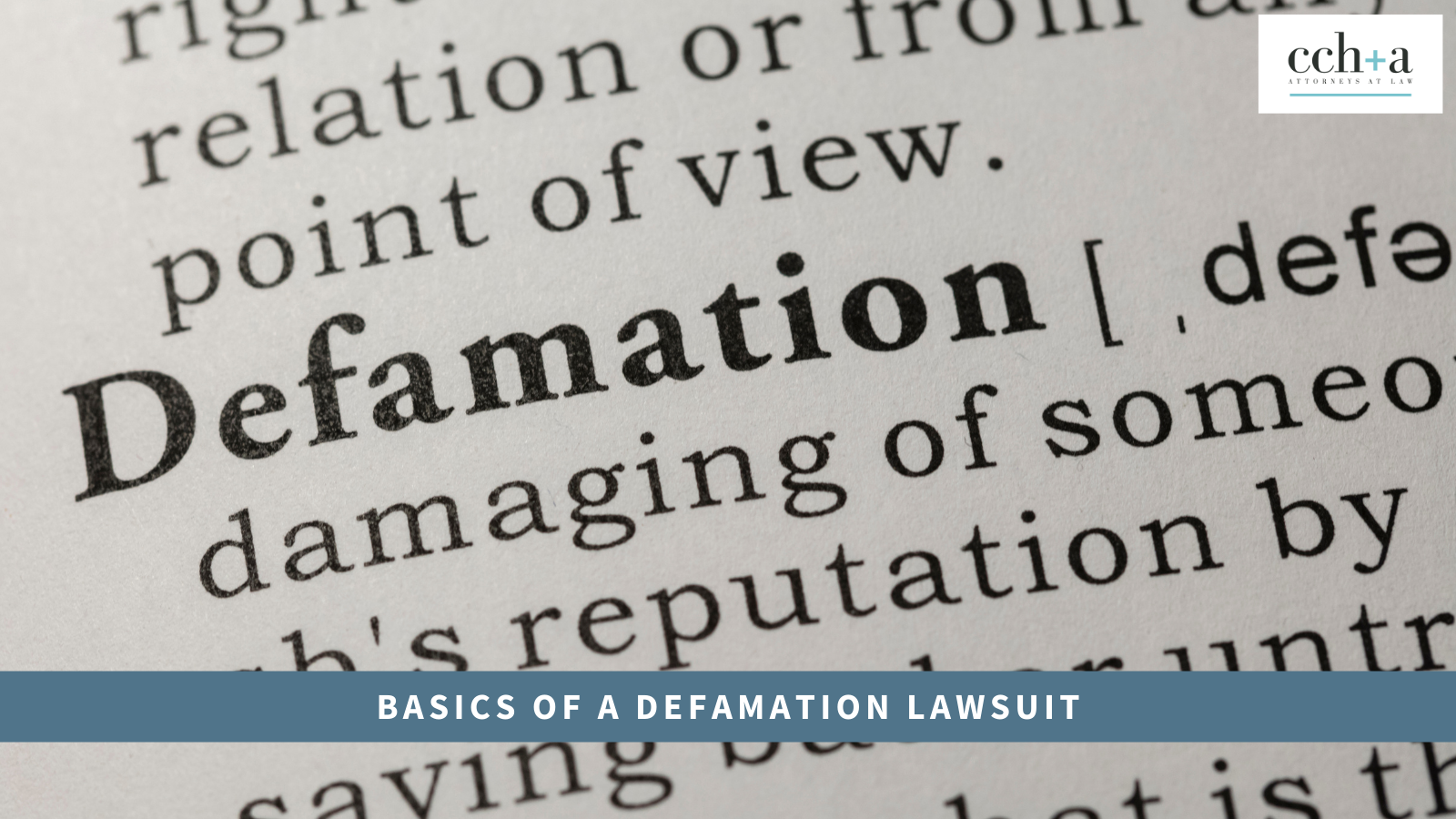
Whether a business entity or an individual, your reputation is an important asset to possess. Once tarnished, you’ll likely suffer varying consequences. The law aims at protecting both businesses and individuals from suffering intentional damage to their reputations, known as defamation. Defamation are statements made that damage a victim’s reputation, whether as an individual or a business. While certainly entitled to the constitutional right of freedom of speech, the law helps create a careful balance between free speech and the right for a victim to protect and maintain their good name. This is the argument one must prove when trying to prove defamation, which is a civil matter versus a criminal matter in terms of the law.
In a defamation lawsuit, the plaintiff may sue the defendant for the injurious statement he or she made. The statement can be made in two forms:
1. Libel: written and published defamation, such as on a website, in the newspaper, etc.
2. Slander: verbal/spoken defamation, or in this day and age, slander can also take shape on the internet and social media.

As a regular citizen (not a public figure), what you must prove to collect damages differs from a public figure. Say you are a small business owner who has never been arrested, by the name of Jill Reed. Someone by the name of Jyll Reid is arrested and accused of a violent crime, making the front page of her local newspaper with the headline “Jill Reed commits violent crime”, with not the image of the perpetrator, but instead of you. The newspaper has published both incorrect and damaging misinformation and as a result, your reputation can now be negatively impacted, even if the newspaper prints a correction. You have grounds to bring a lawsuit for libel and a good likelihood of winning the case.
Public figures have a far greater burden to bear when proving defamation, making it far more difficult to win their legal cases. In between public figures and private citizens is a category known as “limited public figure”, referring to a non-famous person who intentionally and knowingly injects themselves into a public debate or standing. If in this category, you lose some of the protections you possessed as a private citizen, making winning the defamation lawsuit more challenging.
Filing a Defamation Lawsuit
The victim’s complaint starts the case. Once you have the opportunity to meet with an attorney, they will do some initial investigation to determine if you have a viable case, at which point in time a complaint will be filed in your state’s civil court system — the document that initiates the lawsuit. It’s important to bear in mind that it can take more than a year for a defamation case to make its way to trial, and that meanwhile, settlement negotiations will get underway and be ongoing during litigation.
Service, Answer and Discovery comes next in the process. The defendant is served with the lawsuit documents and has a period of time in which to file a response. Next, the court communicates a scheduling order, providing all deadlines in a case — thus beginning the “discovery” phase. Each party involved will, through their attorneys, send written questions called interrogatories. These questions are responded to under oath, and help the opposing party learn more about you, any potential witnesses, and the facts of your case against them.
The other party will likely ask you to produce certain documents, which your attorney will assist you in gathering and facilitating. Your attorney will also aid you in determining if situations exist where you can withhold documents or decline to answer certain questions, to assist with your case.
Depositions are next and play a crucial role in any defamation or personal injury lawsuit. The victim (plaintiff) should expect to be deposed in a defamation lawsuit. In any lawsuit, but especially a defamation lawsuit, you and your attorney should meet and thoroughly prepare for your deposition.
The discovery period is when settlement negotiations typically begin. Whether to settle your case out of court or take it to trial is up to the client, but your attorney will offer their advice on the matter. There are a myriad of reasons why your attorney may suggest settling even on strong cases, so it is important to align yourself with an attorney whose experience and knowledge of your situation is extensive.
Generally speaking, most defamation lawsuits (such as with most injury-related lawsuits) will reach a settlement. However, if the two parties cannot reach an agreement, the case may then move to trial.
The experienced and trusted personal injury attorneys at CCHA are here and available to help you move forward with your defamation suit. We bring the same level of determination and commitment to our clients in every case – seeking full and fair compensation for any losses you suffer as a result of a damaged personal or business reputation.
Contact us to discuss your case. We’ll walk alongside you in your fight to redeem your name and fight for the damages you deserve.


